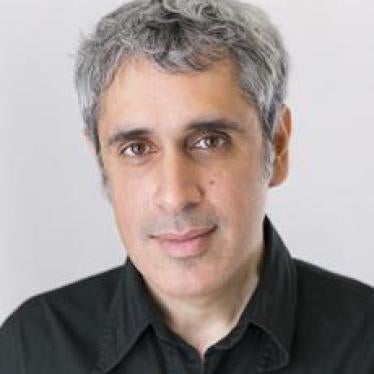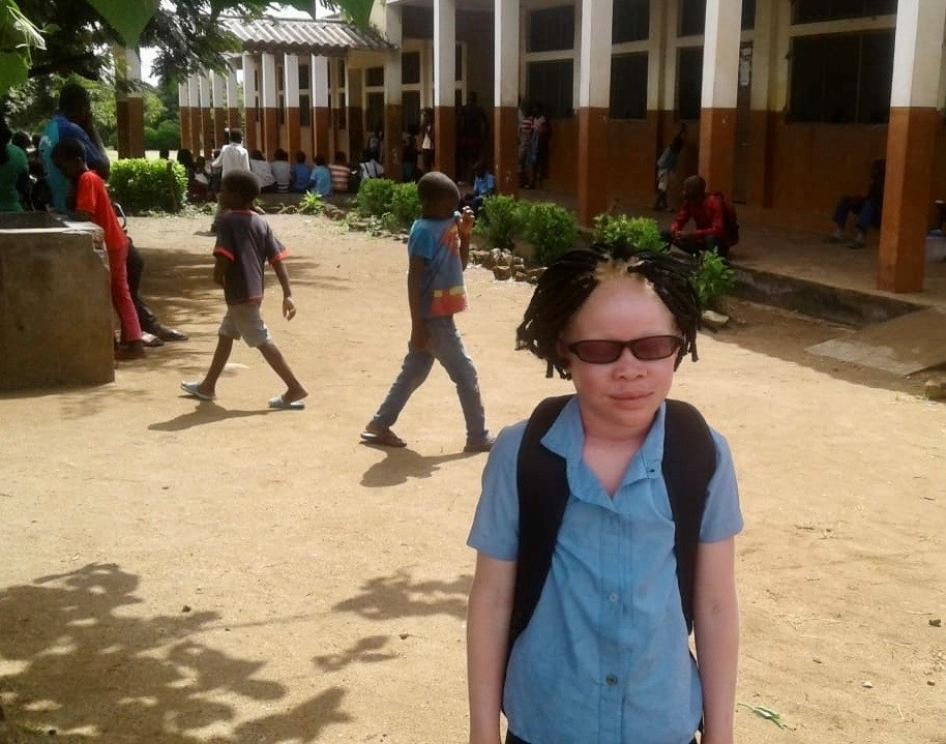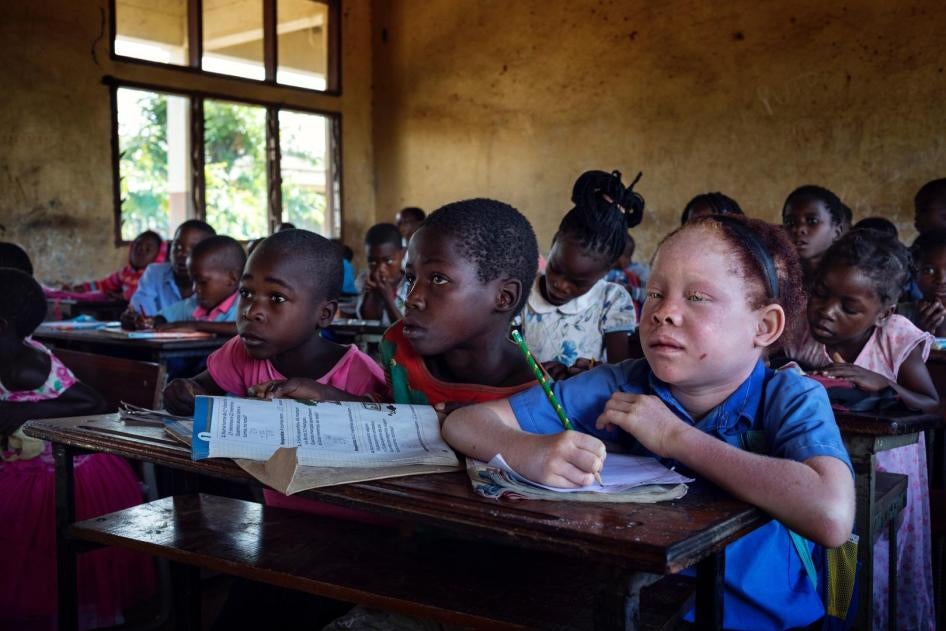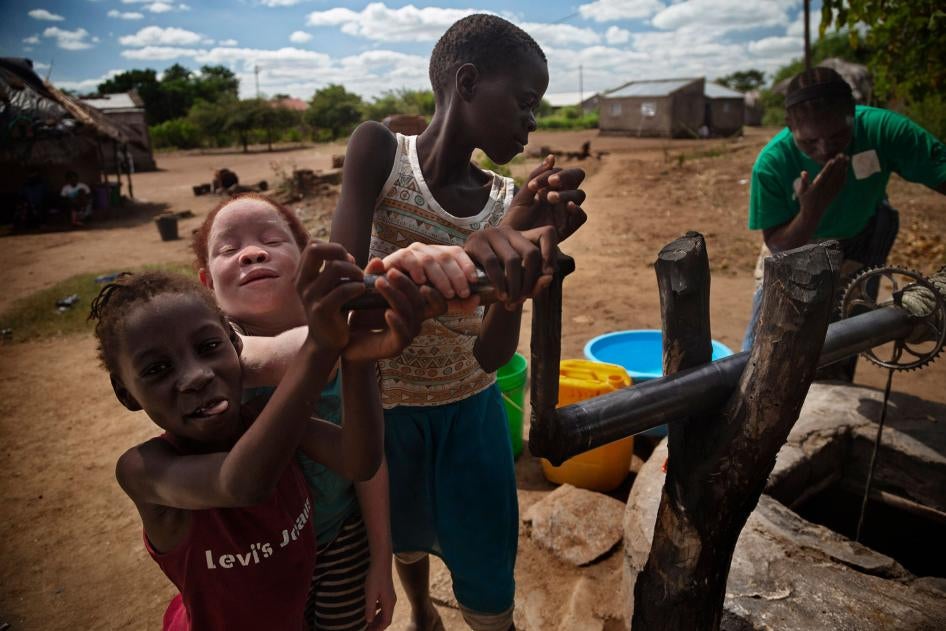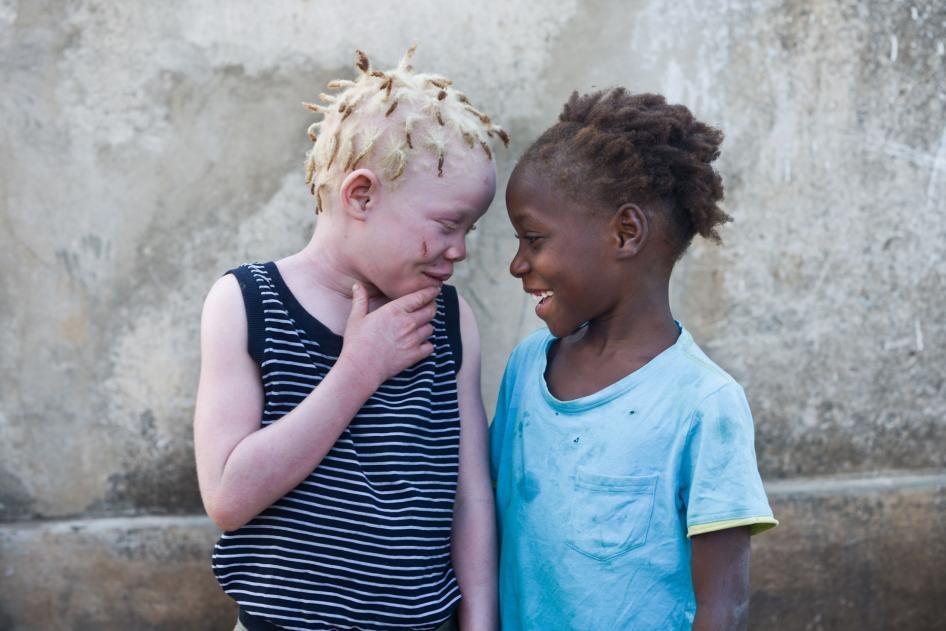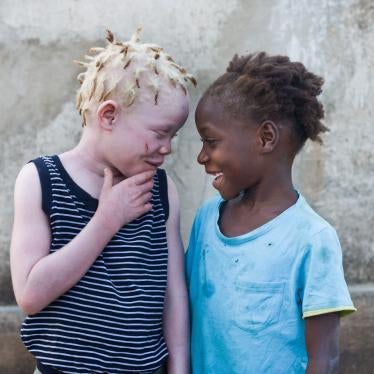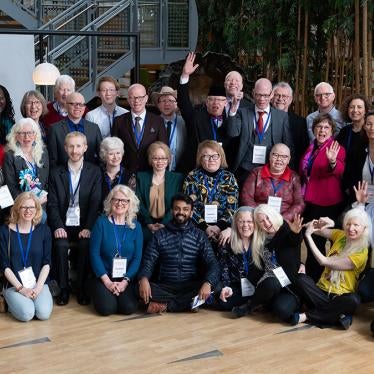June 13 is International Albinism Awareness Day, a day to celebrate people with albinism and join their fight to end discrimination. Earlier this year, people with albinism from around the world unanimously voted to form a global alliance on albinism – a historic moment that could mark a turning point in the realization of their rights.
Last June, I watched Josina, an 8-year-old girl from Mozambique, put on a pair of prescription glasses for the first time. It changed her life.
“At school, the glasses help me study,” Josina told us a few weeks ago at home after schools closed because of the Covid-19 pandemic. “Now I can read with less difficulty, and I can copy better from the blackboard or book without missing words.”
Josina has albinism, a genetic condition in which the body produces lower levels of melanin, giving her a fairer complexion as well as low vision. When we first met, Josina struggled in school even though – unlike most other children with albinism we interviewed – her teacher and family were very supportive. But something as simple as eyeglasses, a rarity for most children in Tete, one of Mozambique’s poorer provinces, truly opened her world. They made her feel like any other kid.
The eyeglasses were possible because of Azemap, a volunteer-run group that provides basic necessities, such as sunscreen, scent-free soap, and sun-protective clothing, to people with albinism in Mozambique. These small things make a difference, too.
A key finding in Human Rights Watch’s 2019 report "From Cradle to Grave: Discrimination and Barriers to Education for Persons with Albinism was that students with low vision in Tete province lacked access to appropriate learning materials, such as large-print textbooks, assistive devices, extra time for exams, and seating arrangements near the blackboard. And while eyeglasses can be helpful for some children with albinism, they are by no means a substitute for these measures. And many other children require additional adaptive devices such as monoculars.
In Josina’s case, her glasses are her prized possession. “She takes care of them because she realizes their importance,” Josina’s mother told us. “She only uses them to study.”
Even more precious to Josina are her relationships with her teacher and family, including Luisa, her niece and best friend. These relationships help her endure the stigma and stares associated with albinism. Witnessing their beautiful interactions and the impact of Azemap’s work reminds me that there’s a lot we can do to make a real difference for children with albinism, even in places with limited resources.
This International Albinism Awareness Day, let us celebrate Josina and other people with albinism for their resilience in the face of unimaginable difficulty, and reflect on the promise that the new global alliance holds. Human Rights Watch will stand alongside activists with albinism to ensure the promise bears fruit. Because people with albinism are #MadetoShine.
